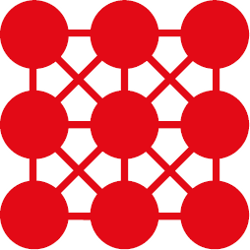When you’re a yoga teacher, you inevitably notice patterns in the ways your students practice. In the year that’s passed since I became a certified instructor, one such trend among yogis has started to drive me crazy: Upon entering a studio, many won’t give props like blocks and blankets a second glance. Little do they know that those objects—sturdy cork blocks, in particular—have the potential to transform their practice for the better.
Why you should use a cork yoga block
There seems to be an expectation floating around that reaching for a block in a crowded class is a sign of weakness. Yet that couldn’t be further from the truth—in fact, just about every yoga teacher would tell you that cork yoga blocks actually help students increase their strength by improving the body’s alignment, which prevents injury, alleviates strain, and allows everyone to get the most out of every posture. While a lighter foam block may be softer, it won’t provide the same stability as a classic cork option. That being said, if you practice yoga at home, cork blocks (such as Gaiam Cork Yoga Block, $17; amazon.com) are seriously worth the investment.
RELATED: I’ve Tried More Than 30 Yoga Mats, and My Favorite Is Just $19
How to make the most of them
Consider even a simple yoga pose like a cross-legged sitting position. By placing a cork block below your seat, you’re instantly alleviating pressure from the lower back and opening up through the chest, both of which are keys to great posture. More complicated poses, including ones that involve balancing, can benefit from blocks placed beneath one or both hands to increase stability, allowing yogis to focus on other aspects of the pose, like alignment and, most importantly, the breath.
The best cork blocks to buy
Achieving major improvements in your yoga practice doesn’t require breaking the bank. A single cork block from Gaiam can be purchased for just $17 on Amazon, while the brand’s downsized cork brick is cheaper still at $10 a pop. Both are made of all-natural cork, meaning they can be recycled down the line (though we don’t know why you’d ever get rid of them). Other great cork block options include Yogu’s set of two cork blocks, the 42 Birds 100 Percent Recycled Cork Yoga Block, and the standard cork block from Manduka, all of which are also available on Amazon. The ways you can use them are endless, and trust me, your body will thank you. Keep scrolling for more info on each of our top cork yoga block picks.
Gaiam Cork Yoga Block
Customer reviews of this block make the difference between cork and foam yoga blocks crystal clear. “I use them mainly for restorative poses (for example supported bridge) so the solid cork is awesome and feels much better than the spongy blocks,” one reviewer wrote. “When I use it in a pose to open up more or to work on form, the solid cork block gives me much more stability.”
To buy: amazon.com, $17
Yogu Yoga Blocks Set of 2 in Cork Wood
Yogu’s $24 two-pack of cork blocks makes it the most budget-friendly of the bunch (it works out to $12 a piece). With over 300 5-star reviews and a satisfaction guarantee in the form of a one-year warranty, these blocks have plenty going for them.
To buy: amazon.com, $24
42 Birds 100 Percent Recycled Cork Yoga Block
The sustainability of this block is wonderfully reminiscent of yoga’s peaceful philosophy. Plus, 42 Birds donates a portion of its sales to nonprofits supporting cork forests and wildlife, so this is a purchase you can undoubtedly feel good about.
To buy: amazon.com, $22
Manduka Cork Yoga Block
Few things make me happier than walking into a new yoga studio and seeing dozens of these blocks lined up on shelves. Manduka may be known best for its slip-resistant yoga mats, but if you ask me, the brand deserves just as much credit for its other amazing offerings, like this perfectly-proportioned cork yoga block.
To buy: amazon.com, $18
To get our top stories delivered to your inbox, sign up for the Healthy Living newsletter







